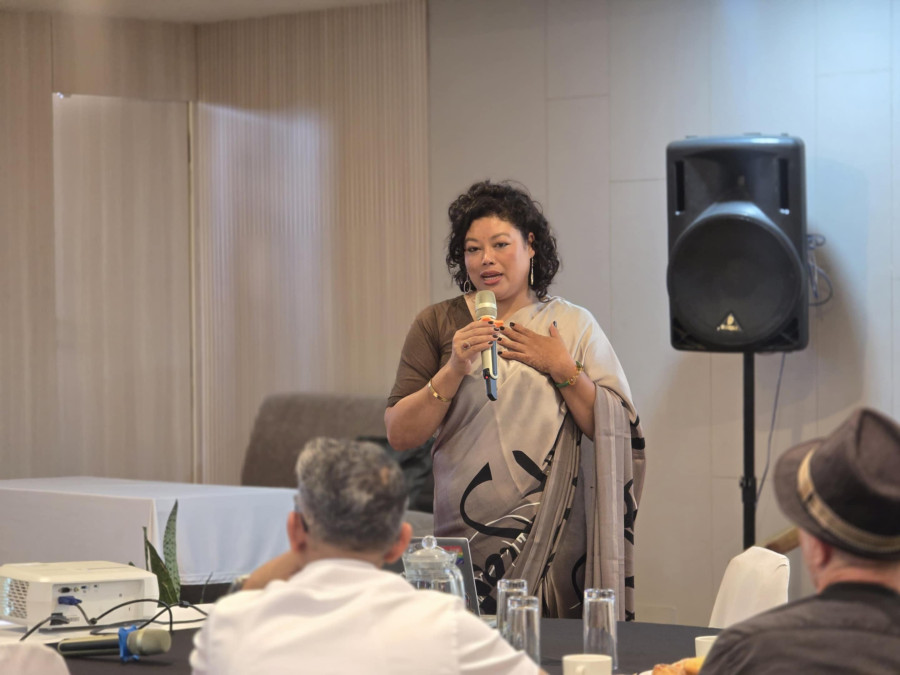Valley
Officials and activists push for marriage equality reforms
Queer couples in Nepal have lived together for years without legal status or protection.
Post Report
Government officials, legal experts, and LGBTQIA+ activists convened in Kathmandu on Wednesday to push for concrete legal reforms, highlighting that Nepal’s path to marriage equality is still not clear. They urged Parliament to amend discriminatory laws, ones that deny queer couples full legal recognition and protection.
Speaking at the event organised by Mitini Nepal, Mukesh Kumar Keshari, director of the registration unit under the Department of National ID and Civil Registration, said they have been facilitating registrations for queer couples following the Supreme Court’s interim order.
The court’s directive in June 2023 enabled queer couples to register their marriages temporarily. In response, the Ministry of Home Affairs issued a circular on April 24, 2024, allowing local governments to proceed with documentation.
But Keshari acknowledges that marriage should not be a ‘temporary provision’ for queer couples.
“This is a human rights issue,” he said. “The definition of marriage in the Civil Code, which recognises marriage strictly as a union between a man and a woman, must be amended.”
Queer couples in Nepal have lived together for years without legal status or protection. Laxmi Ghalan, founder and chair of Mitini Nepal, said the temporary marriage registration system has done little to change that, leaving couples in limbo and forcing them to constantly fight for basic dignity. “The laws must change,” Ghalan said.
One such couple is transgender man Samyog KC and his partner. After living together for four years, they were finally able to register their marriage in Gulmi, Lumbini.
But for KC, the registration remains largely symbolic. “My partner can’t get citizenship through me,” he said at the event. “We still don’t have joint property rights or any of the legal protections other hetero married couples enjoy.”
“The ministry treats these issues as a priority,” said Badri Kumar Karki, director at the Ministry of Women, Children, and Senior Citizens. “Although difficult, reform is necessary, and we’re ready to collaborate with stakeholders.”
The stakeholder dialogue drew 62 participants. They included officials from the Office of the Attorney General, Department of National ID and Civil Registration, Ministry of Women, Children and Senior Citizens, National Women Commission, National Inclusion Commission, journalists, and LGBTQIA+ community members.
Referring to Article 18 of the Constitution, Deputy Attorney General Sanjivraj Regmi urged the state to uphold the principle of equality through laws that protect and uplift the community.
“The judiciary’s role is not to legislate but to intervene only when existing policies fail. It falls upon Parliament to act,” said Regmi. “So, this discrimination towards the queer community must be ended.”




 8.26°C Kathmandu
8.26°C Kathmandu













